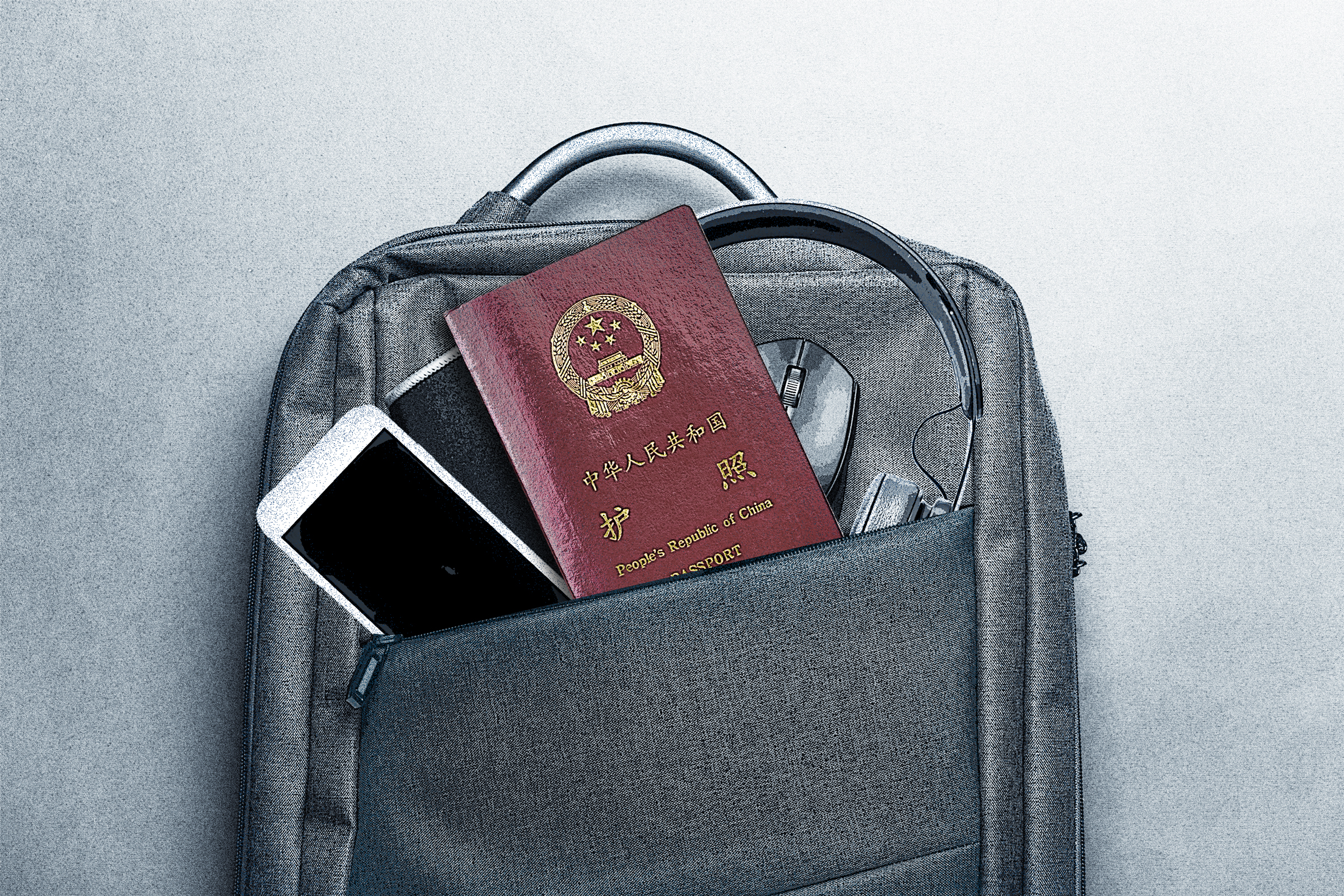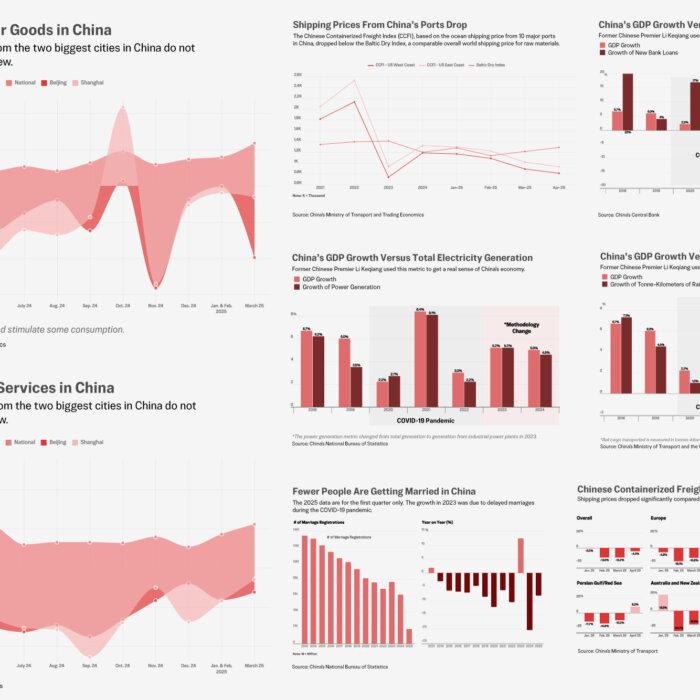The Trump administration’s pledge that it will begin to “aggressively” revoke visas of Chinese students follows years of concern over the Chinese regime’s efforts to infiltrate U.S. academia.
State Department spokesperson Tammy Bruce on May 29 said the government is enhancing scrutiny of all Chinese visa holders in the United States. She declined to detail specific criteria the department will use in assessing applications.
“We will not tolerate the CCP’s exploitation of U.S universities or theft of U.S. research, intellectual property or technologies to grow its military power, conduct intelligence collection or repress voices of opposition,” Bruce said.
While the vast majority of Chinese students and researchers are in the United States for legitimate academic reasons, the FBI said, the CCP uses some Chinese students, particularly postgraduate students and postdoctorate researchers studying science, engineering, and mathematics, to “operate as non-traditional collectors of intellectual property.”
According to China’s state-run media Xinhua, of the more than 99 million members of the Party, nearly 2.8 million were students, as of the end of 2023.
“We need to do much better and deeper background checks and children of CCP officials should not be studying in the US,” Balding said.
Targeting US Military Installations
Virginia Naval Shipyard
On May 7, Immigration and Customs Enforcement removed Chinese national Shi Fengyun, who was convicted of using a drone to photograph a naval shipyard in Virginia. The Newport News Shipbuilding facility is known for building nuclear submarines and next-generation Gerald R. Ford-class aircraft carriers.
Michigan Military Site
In October 2024, federal prosecutors announced charges against five Chinese nationals who had already left the United States after graduating from the University of Michigan. The group was accused of misleading investigators about a 2023 trip they took as students to a remote military site in Michigan, and of conspiring to delete photos from their cellphones.Naval Air Station, Key West
In 2019, a Chinese exchange student named Zhao Qianli was sentenced to a year in federal prison after pleading guilty to photographing defense installations at the U.S. Naval Air Station Key West in Florida. Zhao was found to have overstayed his visa after studying at a summer exchange program.During questioning, Zhao admitted to having received military training as a university student in China—a fact that he failed to disclose on his visa application. The North University of China, which Zhao attended, has deep ties to China’s military that go back more than 50 years, to the founding of communist China.

IP Theft
Zhang Hao
Chinese professor Zhang Hao was sentenced in 2020 to 18 months in prison and ordered to pay $476,835 after being convicted of conspiracy, economic espionage, and theft of trade secrets. He conspired with a colleague from the University of Southern California and four others to steal wireless signal filtering technology for the benefit of the Chinese regime.Zheng Zaosong
Zheng Zaosong came to Harvard University’s Beth Israel Deaconess Medical Center as a visiting graduate student in pathology in 2018. On Dec. 9, 2019, Zheng was caught hiding 21 vials of biological materials packed in a sock inside one of his bags at Boston Logan International Airport.In January 2021, he was sentenced to time served (about 87 days) and three years of supervised release, and was ordered to be removed from the United States.

Guan Lei
In 2020, the FBI initiated an investigation into Guan Lei, a visiting researcher at the University of California, Los Angeles, who was in the United States on a J-1 visa. Guan was suspected of transferring “sensitive U.S. software or technical data” to China’s National University of Defense Technology, according to prosecutors.Hu Haizhou
Hu Haizhou came to the United States to conduct research on bio-mimics and fluid dynamics at the University of Virginia. In August 2020, Hu was charged with theft of trade secrets and computer intrusion after he was caught at Chicago’s O’Hare International Airport trying to transport advanced computer codes to China that he allegedly stole from the university, prosecutors said.The China Scholarship Council, run by China’s Ministry of Education, covered the costs associated with Hu’s research in the United States. The council required him to give summary reports regarding his University of Virginia research every six months, Hu told the investigators.
Prosecutors dropped charges against Hu in 2020.

Harassment of Chinese Democracy Activists
The student had posted a piece of paper near the Boston campus that read, “Stand with Chinese People,” “We Want Freedom,” and “We Want Democracy,” according to court documents. Consequently, Wu started making threats against the student via Instagram, email, and the Chinese messaging app WeChat.
“Any such intimidation is unacceptable and unwelcome to our campus,” Daniels stated, noting that Kong’s family in China was “visited and threatened by agents of [the Chinese regime’s] secret police.”

Alleged Chinese Spy
Christine Fang, or Fang Fang, was enrolled as a student at California State University–East Bay from 2011 to 2015, according to a 2020 investigative Axios report. During that time, she was allegedly tasked with networking with and befriending up-and-coming U.S. officials on behalf of communist China.Fang allegedly worked for the Ministry of State Security, China’s chief intelligence agency. She also allegedly worked closely with the Chinese Consulate in San Francisco.
Fang built up relationships with numerous politicians in California and elsewhere, including Rep. Eric Swalwell (D-Calif.) when he was a city council member.
She also used campaign fundraising, networking, and romantic or sexual relations with at least two mayors from cities in the Midwest to “gain proximity to political power,” according to Axios.

Smuggling
Jianhua “Jeff” Li, a Chinese national living in the United States on a student visa, was sentenced in 2019 to 37 months in prison for smuggling counterfeit Apple products from China to the United States.Undercover Military Officers
Ye Yanqing
Ye Yanqing, a lieutenant in the People’s Liberation Army (PLA), was charged in 2020 with visa fraud for allegedly lying on her J-1 visa application by identifying herself as a student and not disclosing her ongoing military service.According to the federal complaint, Ye was an exchange student at Boston University from October 2017 to April 2019 under a sponsorship from the Chinese regime. She completed “numerous assignments” for the Chinese military during her time at Boston University, including retrieving U.S. military intelligence and sending U.S. documents to China.
At the time of charging, Ye was in China.

Tang Juan
In 2020, three Chinese researchers were accused of making false statements on their J-1 nonimmigrant visa applications about their ties to the Chinese military, before their cases were dropped roughly a year later.The charges against her were dismissed in July 2021.

Wang Xin
Wang Xin was arrested at the Los Angeles International Airport in June 2020 before he could board a plane back to China, and he was charged with visa fraud.Wang falsely claimed that he had served as an associate professor in medicine in the PLA from September 2002 to September 2016 in applying for a J-1 nonimmigrant visa. After obtaining his visa, Wang started working as a medical researcher at the University of California San Francisco.
He told the customs officers that he was still employed by the PLA as a “Level 9” technician during his stay in the United States, a fact that he allegedly did not mention in his 2018 visa application, according to court documents.
Song Chen
Song Chen entered the United States in December 2018 and began working as a visiting researcher at Stanford University. Song was charged in July 2020 with visa fraud, after prosecutors found that she continued to be affiliated with the PLA air force well past her stated termination date of June 2011 in her 2018 visa application.The government dismissed the case in July 2021.












